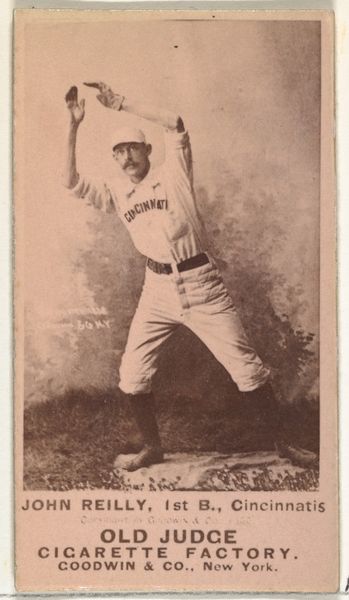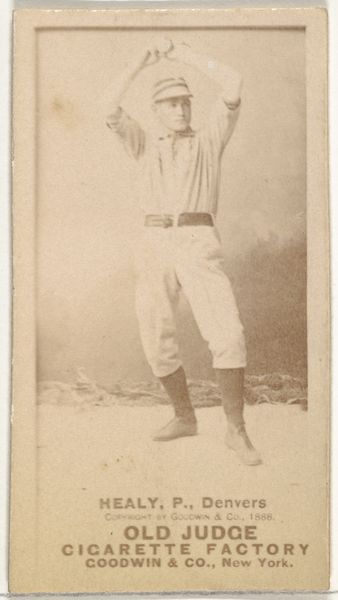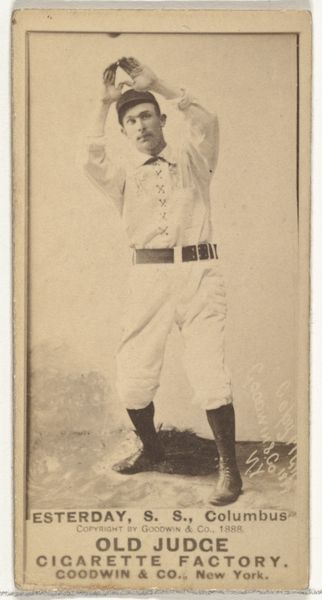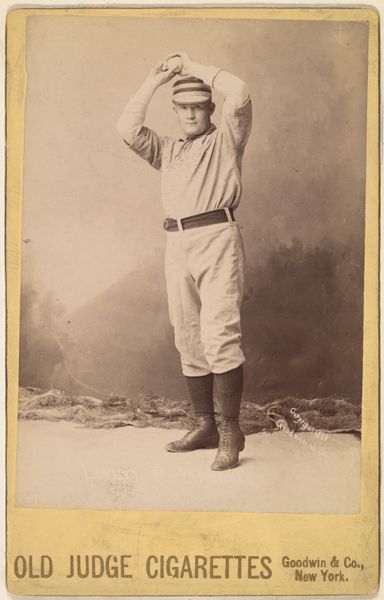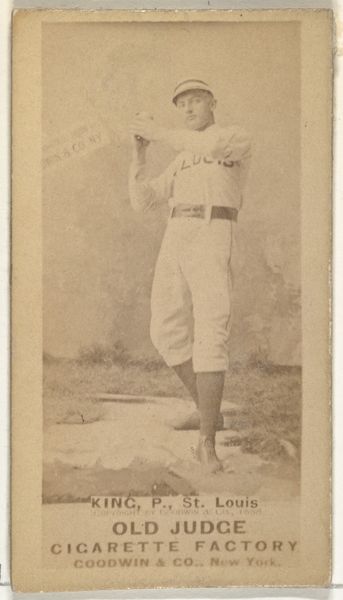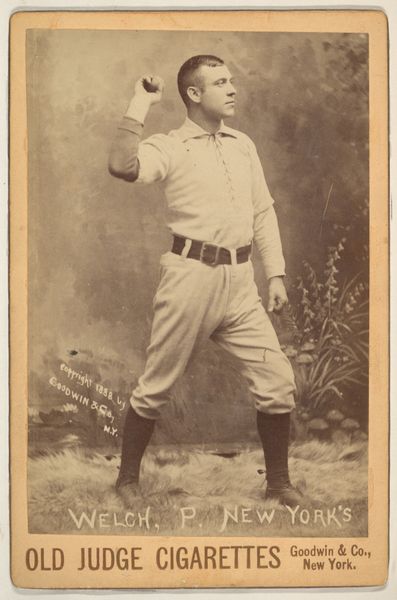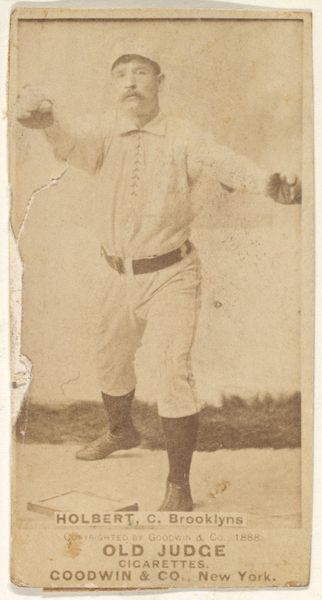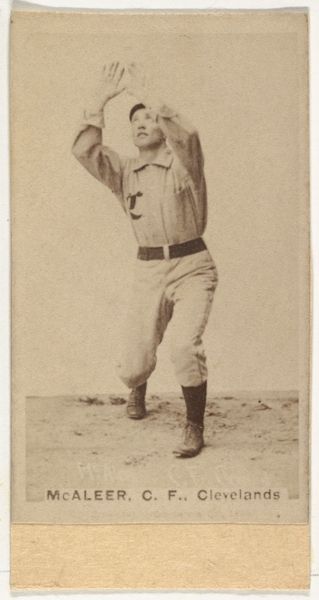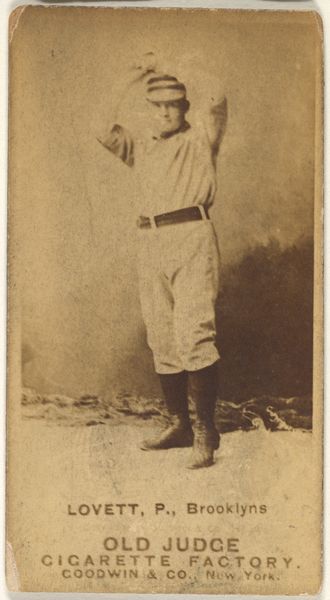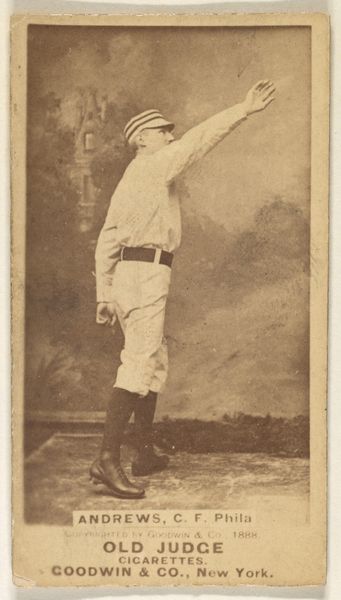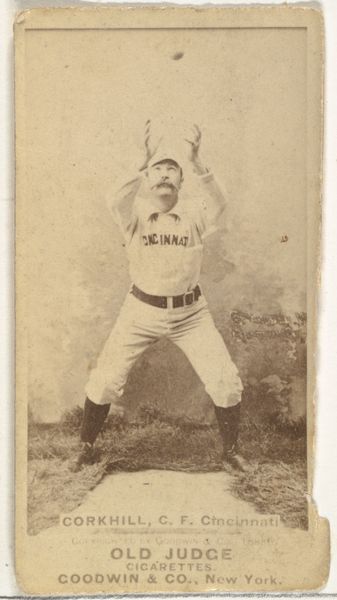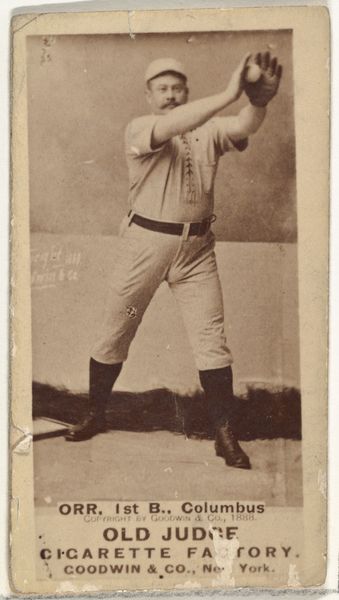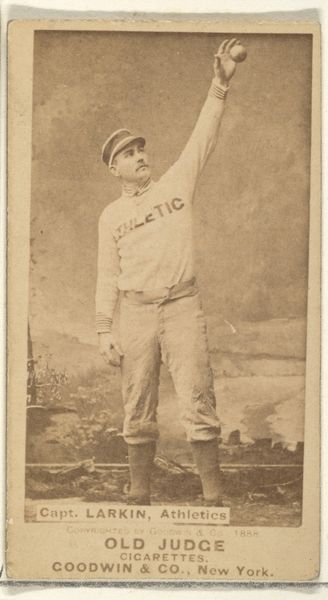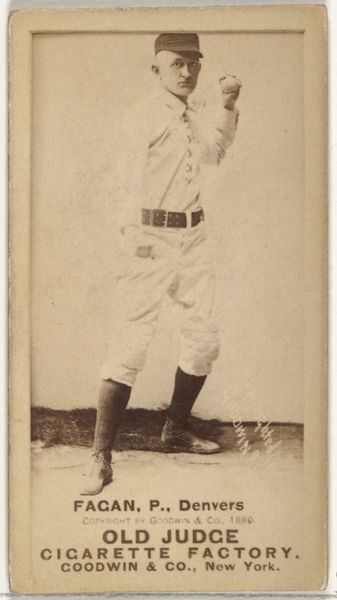
John Reilly, 1st Base, Cincinnati, from the series Old Judge Cigarettes 1887
0:00
0:00
print, photography
#
portrait
# print
#
baseball
#
photography
#
19th century
#
men
#
athlete
#
realism
Dimensions: sheet: 6 1/2 x 4 3/8 in. (16.5 x 11.1 cm)
Copyright: Public Domain
Curator: Looking at this image, "John Reilly, 1st Base, Cincinnati," a photograph from the Old Judge Cigarettes series, dated 1887, I’m immediately struck by the carefully arranged pose. It is an early example of advertising blending sport and consumer culture. Editor: There’s a sepia stillness here, a palpable sense of deferred action. The athlete seems suspended, caught between the throw and the catch, forever immortalized through early photographic print technology, but the backdrop and pose feel remarkably constructed. Curator: Indeed, the composition draws heavily on conventions of portraiture. Notice how the figure dominates the frame, yet his face is cast in shadow, which diminishes individual expressiveness. The artist directs our attention through formal means, utilizing a restricted palette. The color harmony, while simple, subtly reinforces the image's structure. Editor: For me, it's the production of this artifact within a broader context that's compelling. Manufactured as a promotional card, it existed as a small, collectible object intended to be handled, traded, and ultimately consumed, linking mass culture with athletic prowess and cigarette use. What labor went into the printing of thousands of these? Curator: True, one cannot dismiss the material context; the object embodies capitalism's encroachment on leisure. But considering purely formal elements, the diagonal lines formed by Reilly’s outstretched arms create visual dynamism, in tension with his relatively static posture. His gesture seems symbolic, as if reaching for an abstract ideal more so than a tangible ball. Editor: The actual materiality suggests a world of grime and physical work that romantic ideal occludes. Reilly’s uniform bears traces of a prior match. Furthermore, while now held within an institution like the Met, its value initially hinged on disposability, making it an artifact of everyday experience rather than rarefied art. Curator: Perhaps. And I am drawn to the almost theatrical staging; it speaks to artifice inherent in early photography. The blurring of fact and fiction through carefully constructed representation elevates it beyond mere documentation. Editor: Precisely, both aesthetics and industrial practices converge, providing insights into social life beyond formal aspects. A piece of everyday commercialism is re-examined to understand better its place in labor history. Curator: Thank you, this object offers us unique interpretive opportunities through differing theoretical frameworks. Editor: And perhaps new ways of considering value and meaning.
Comments
No comments
Be the first to comment and join the conversation on the ultimate creative platform.
